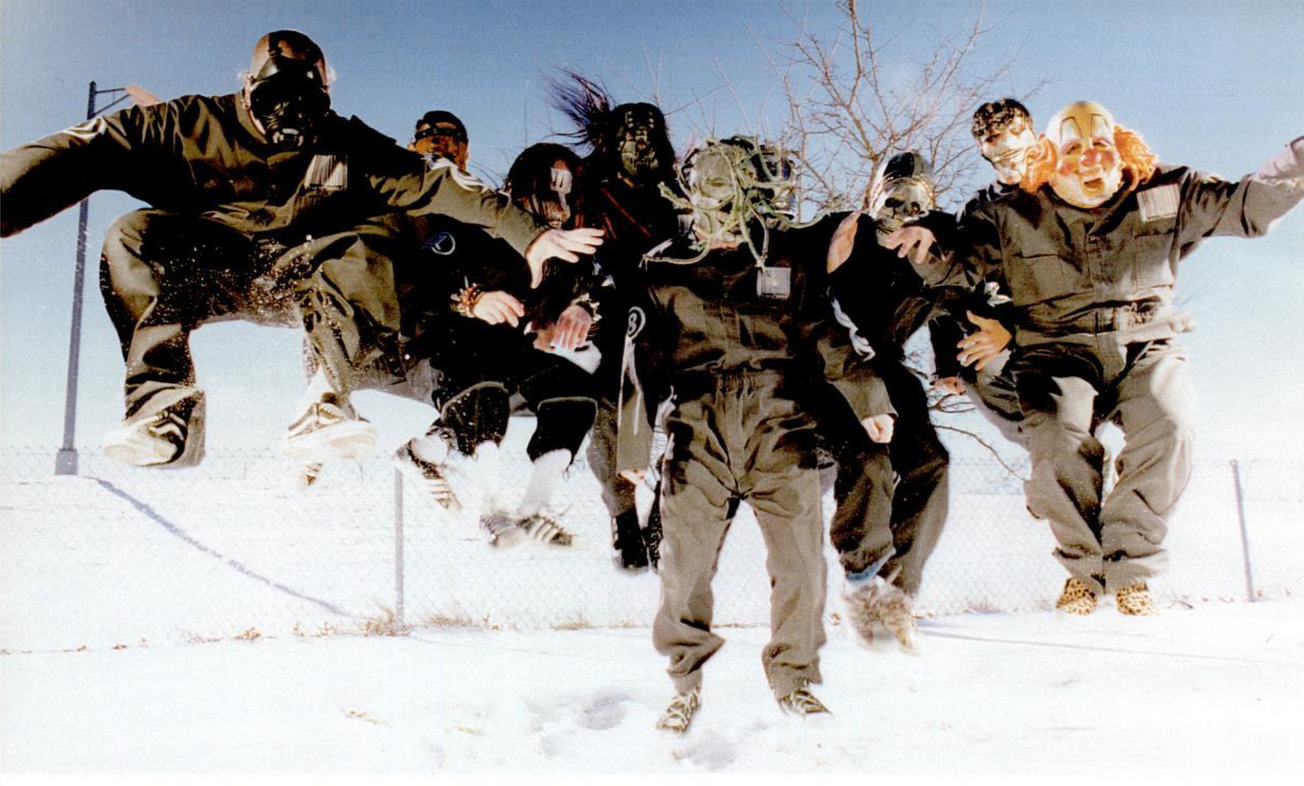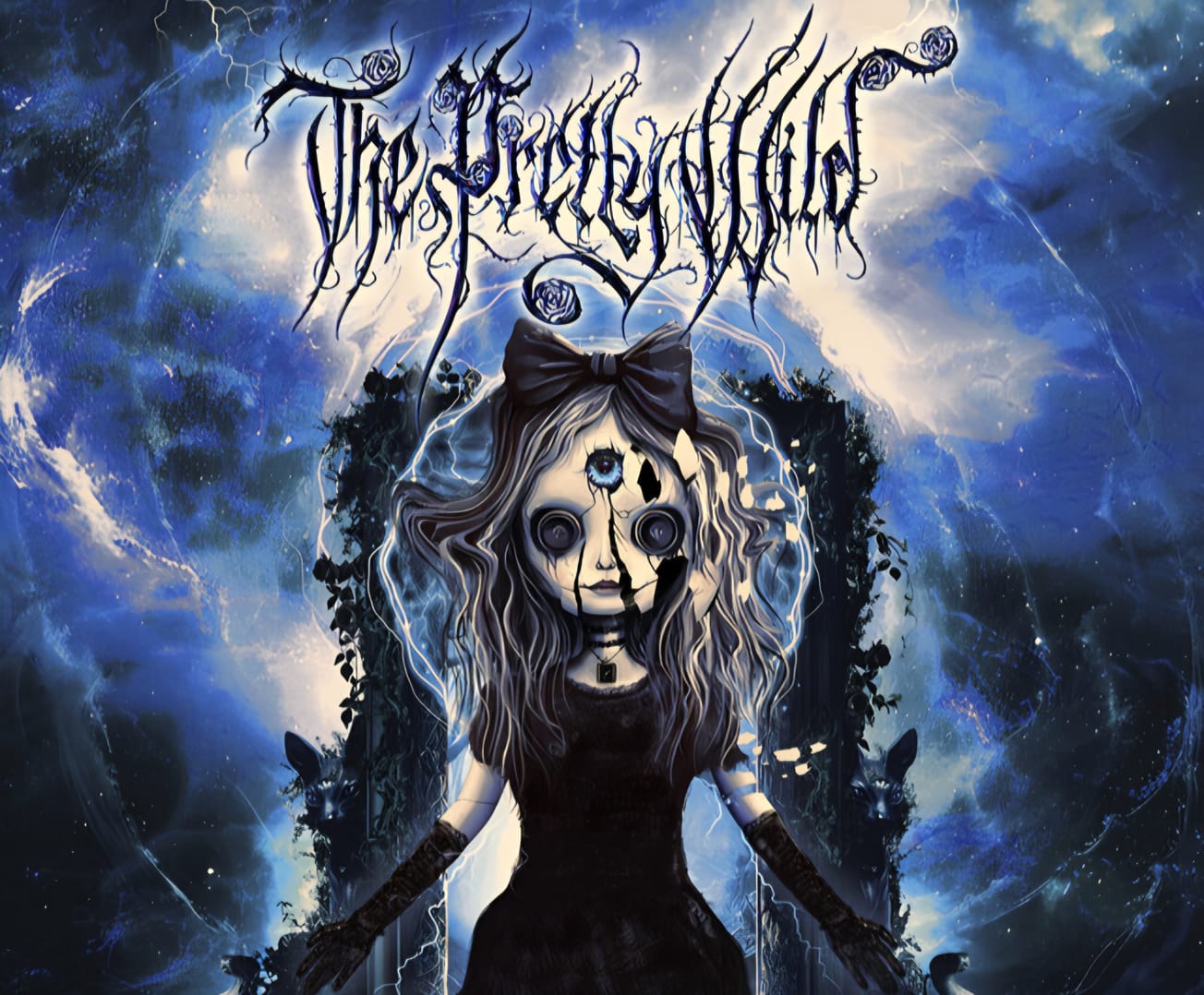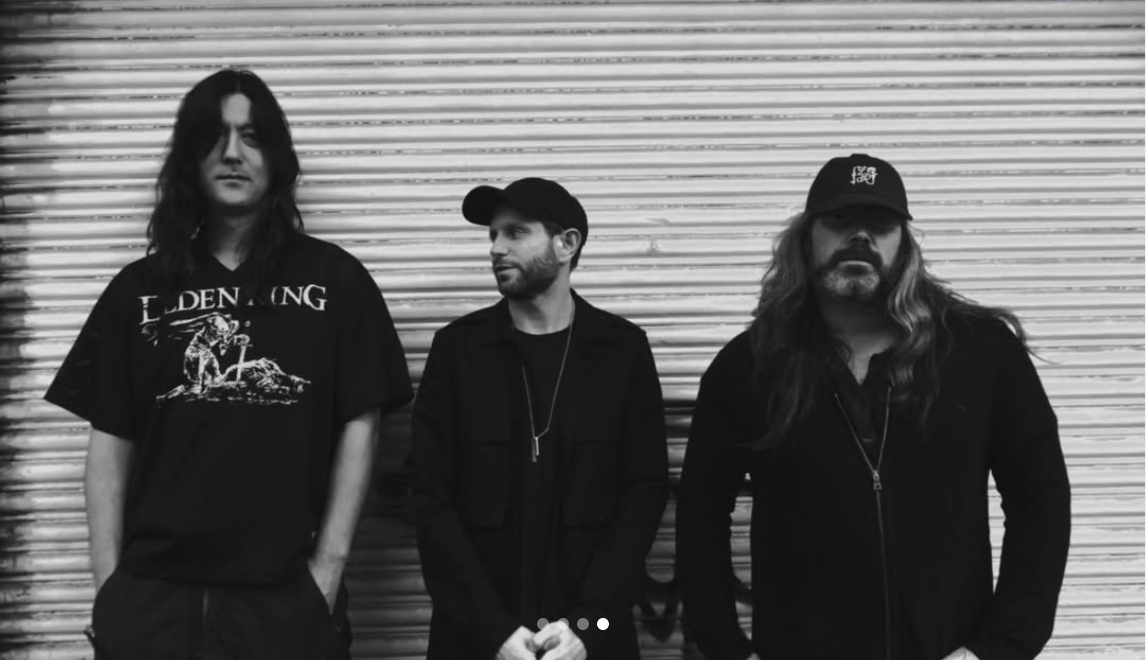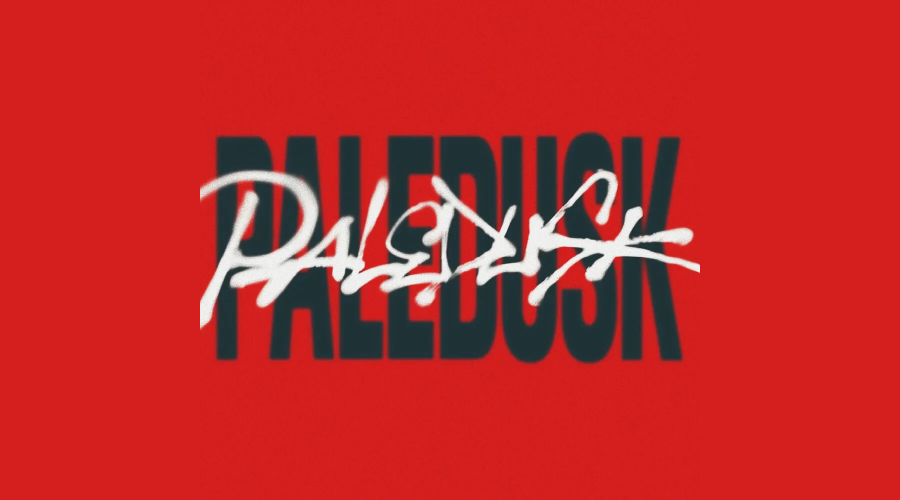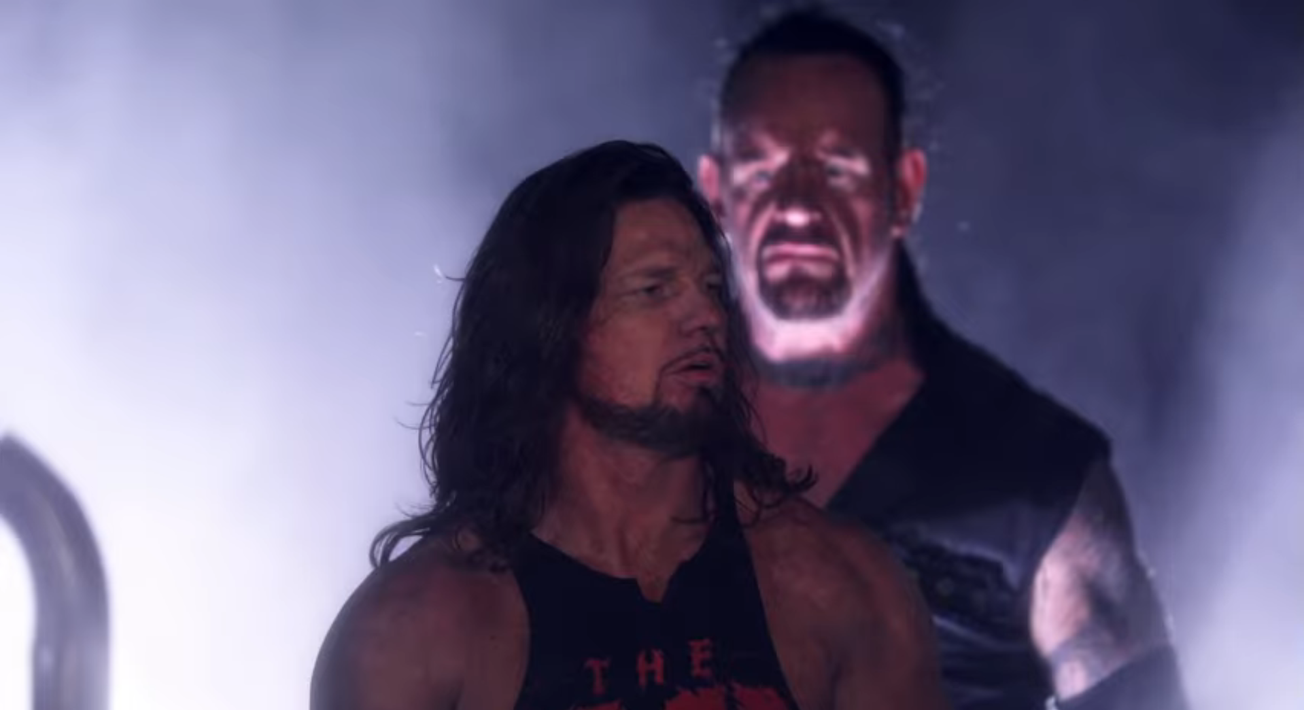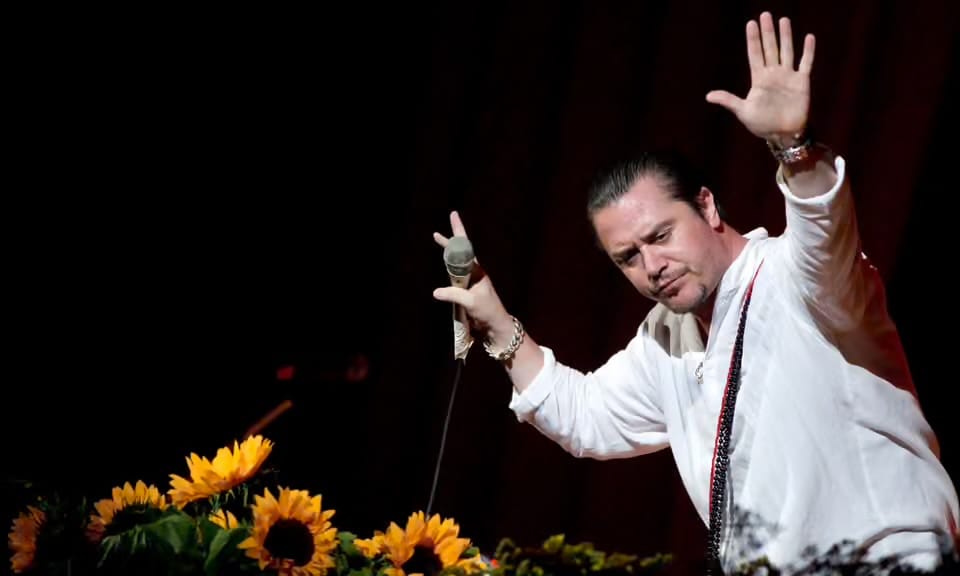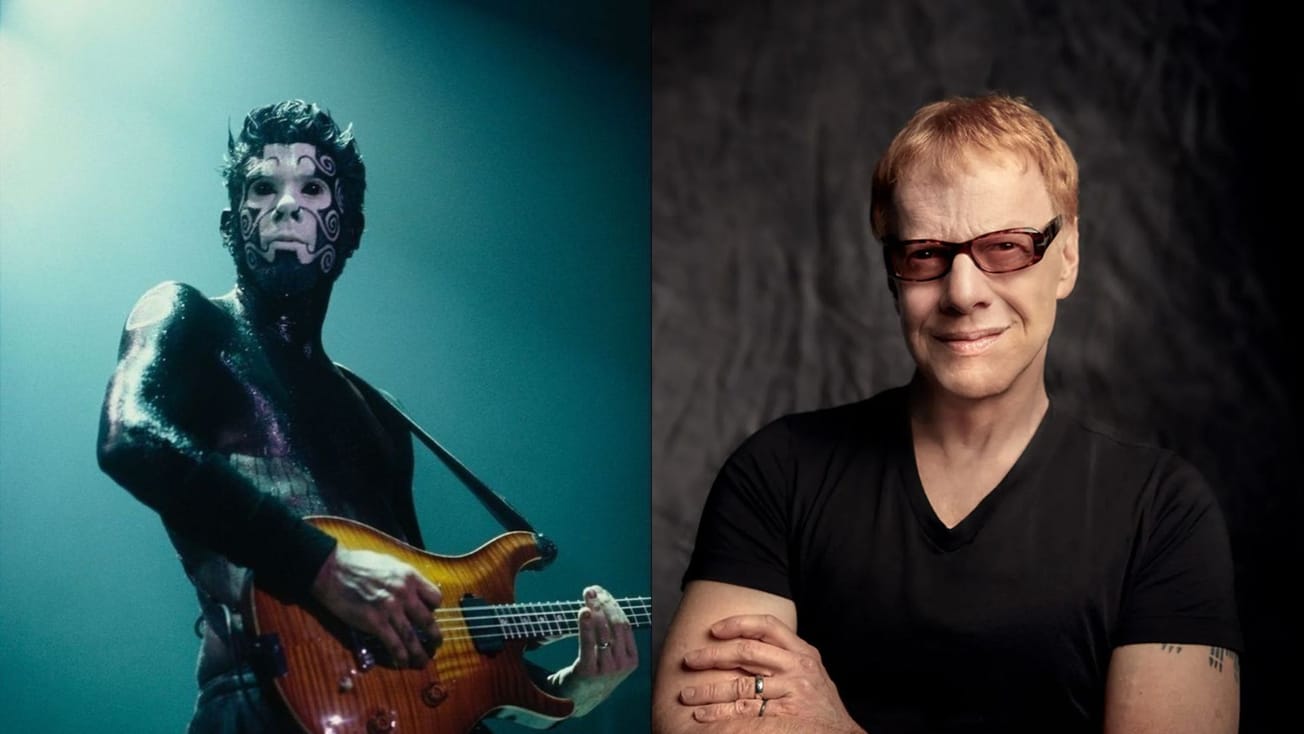“I need some Christmas in my drink.”
It is April 4th, 1996, and Joey Jordison is so excited he’s ready to pass out. After furiously spreading the word through poster distribution, 200 people had shown up to a Des Moines, Iowa nightclub called Safari where Slipknot were preparing to make their big debut. Finally, after years of assembling the band and spending well over $40,000 on a mere demo, Slipknot had arrived. They pressed through the crowd, their dirty homemade masks eliciting as much confusion as fear, to take the stage with feedback bleeding through the speakers. Before the band could play a note, Jordison grabbed the microphone and demanded of the audience:
"I need some Christmas. In my drink.”
Over and over and over he screamed. The audience got nervous. Up there in his cheap Halloween mask, Jordison looked like he was cracking under the pressure. Why this phrase? The purging of childhood demons? A legit request for some Christmas in his drink? Whatever the case, once finished with this strange ritual he sat down at his drum set and launched the band into the song that would become “(Sic).” The Christmas had arrived.
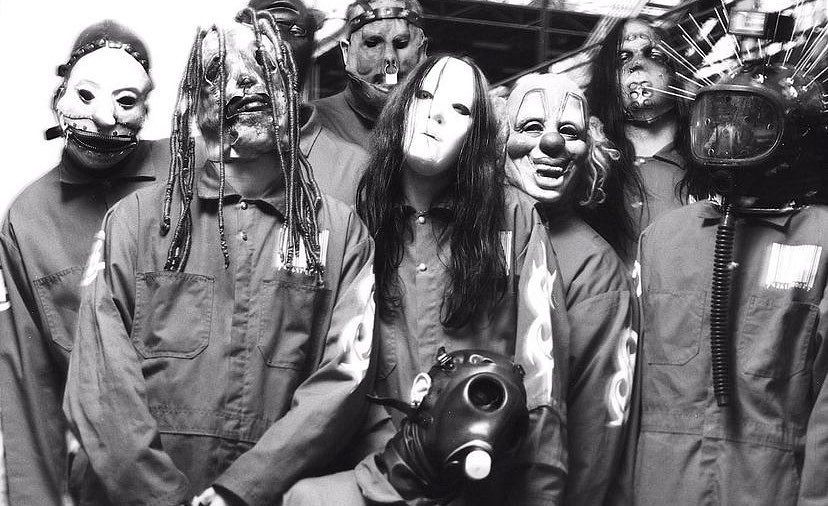
During the holidays, the fervent drummer’s grandfather would hoist his glass of Coca-Cola high and let loose the phrase, “I need some Christmas in my drink.” This was the family’s cue to pass him a bottle of Jack Daniels to spice up his virgin glass of soda. For whatever reason Jordison decided this was how he would kick off the career of nu metal’s most spectacular band.
Slipknot’s self-titled debut album is the dividing line between the first and second waves of nu-metal. No more a crusty offshoot of industrial flowing from LA but still too abrasive for total pop synthesis, Slipknot shook nu metal’s lingering stigma free by simply being undeniably good. So good that its impact resonated well outside of nu metal almost immediately. Metalcore bands quietly reoriented themselves in its wake, while existing thrash and groove metal bands were put on notice. If recent blockbusters Follow the Leader and Significant Other had shown that this sub-genre was a unit shifter of the highest order, then Slipknot proved conclusively that nu-metal was here to stay. Not just grunge successor, but the true punk-and-pop follow-up Nirvana’s Nevermind deserved.
Grunge’s approach to trauma could be - somewhat reductively - described as ‘wallowing.’ Bands like Alice In Chains and Pearl Jam created beautiful, muddy pools of lost time and regret. Nostalgia and trauma. Conversely, nu metal was concerned with catharsis at all costs. Bands of angsty boys bypassing the “poetry” part of songwriting and just howling it out. This process is described in the lyrics of “Surfacing,” “Picking through the parts exposed [...] Over and over and under my skin.” In Slipknot’s world, pain is purely physical. Something in the immediate environment is causing this and if it can be reached it can be defeated. The album’s overriding “me vs you” thesis could be just as easily read as an attack on self. Singer Corey Taylor is determined to liberate his madness and only one of us walks away. His first lyric on the album is “Enemy, show me what you wanna be,” the demand to see your true self is even more urgent than victory.
The grimness of the album is overstated; there’s too much life here for it to be the dark, overbearing tormentscape that it’s often sold as. Taylor, for one, seems to be having a blast with his goofy gangsta persona (“I guess it’s time to bury your ass with the chrome / straight to the dome”) while also surprising with his deftness (his flow on “Liberate” is solid). All over the record is an unbridled passion for playing; these guys are good and they know it. That energy beams brighter than all the lyrics about hate and pain ever could. Until Slipknot’s arrival, nu metal had been defined by a sloppy passion, and enthusiasm overpowering accuracy. Korn’s ‘DIY’ approach to guitar technique, Fred Durst’s economical rap stylings, or Coal Chamber’s knuckle-dragging grooves. Meanwhile, Slipknot showed up with a sound that shreds through thrash, bounce, blast, and groove so effectively that it makes a nine-piece band sound as regimented as a platoon. For a band with two percussionists and a DJ, it’s remarkable how nobody sounds like dead weight. Across Slipknot every member has equal importance, muscles activating and resting for each burst of drop-tuned guitar or rattling percussive accompaniment or turntable scratch. But if Slipknot stands shoulder to shoulder there’s one member who leads by a nose: Joey Jordison.
Joey Jordison was Slipknot’s Drill Sergeant, pushing the band to be harder, faster, stronger through from rehearsal to studio to stage. It was his original efforts that put the band together and earned him the designation of #1, and it’s his mind blowing drum technique that makes Slipknot so untouchable. During the breakdown of “Only One” he unleashes a fill that dispenses with meter - ricocheting between 93 and 84 BPM - before collecting itself and effortlessly snapping back to tempo. On “(Sic)” and “Surfacing,” he flips riffs from thrash to bounce with a quick reordering of the drum n’ bass drum patterns that devastate the set metric and lift feet from the floor. His blast beats are helicopter blades that are whipping through the air so intensely they keep the whole apparatus airborne. In short; he was the Christmas in their drink. A slug of hard alcohol that binds the sugar rush together and knocks you on your ass. Producer Ross Robinson was deep enough in his own career that rendered Joey Jordison and co. starstruck while still green enough to approach Slipknot with the ravenous hunger of a junior proving he’s here to stay. Recorded at the same Indigo Ranch that produced Korn only five years prior, Slipknot finds Robinson refining his “whatever hits hardest” production style into something definitive, a firm middle ground between amateur thrill and professional sheen. A curiously flat for the genre snare is placed into the center of your skull and cranked until it becomes the unstable black matter the rest of the music orbits around. Taylor’s voice is jacked enough to pierce, but with an artful clipping that renders his screams trapped by the booth yet free to roam about your skull. The turntable spinback in “Eyeless” astounds. The haunted forest of car alarms and EKG monitor beeps of “Tattered & Torn”' will shear the skin off your earlobes. Slipknot is never anything less than an auditory feast.
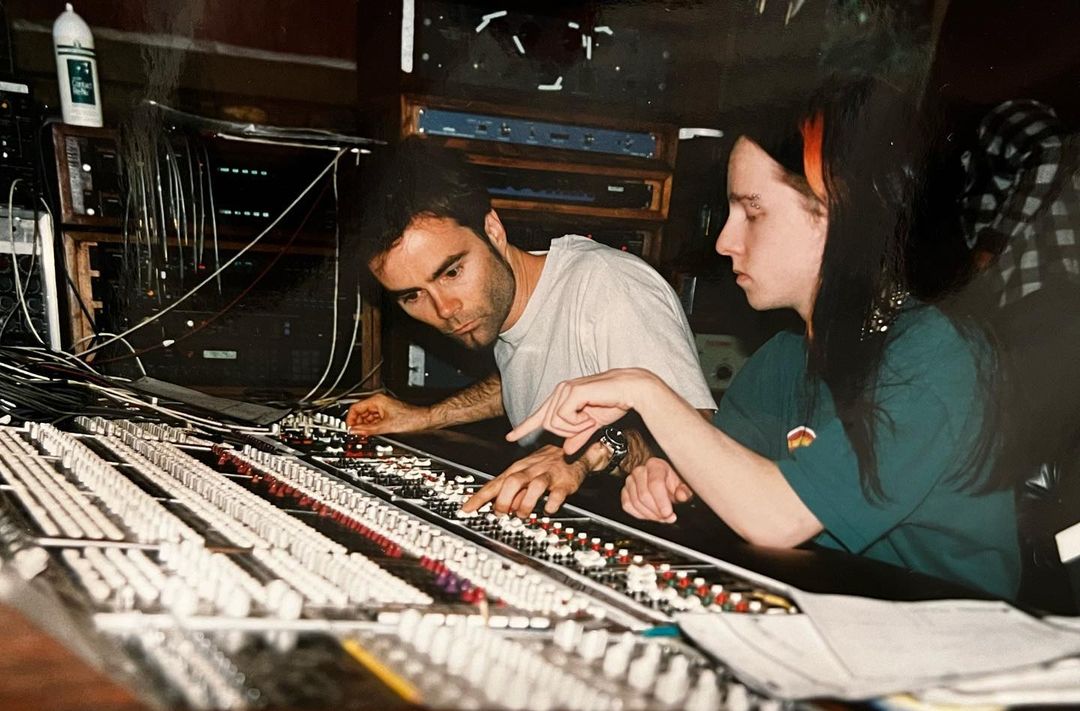
Released on June 29th, 1999, Slipknot would become a slow-burn success through the band’s single-minded dedication to touring. Videos abound of the band leveling unsuspecting Ozzfest crowds, transforming skeptical audiences into diehards and accidentally expounding all the energy they were saving for the headliners because of the sheer power on stage. This tightness would almost immediately become the default state of the scene, as bands like Linkin Park and Papa Roach filed in behind them with click-track accurate precision. In what could reasonably be called “a moment,” multi-Grammy awards-winning jazz musician Thundercat singled out Slipknot to, of all places, Pitchfork as his favorite album of the last 25 years. Yet, despite there being hardly a corner of metal music untouched by Slipknot’s impact it still doesn’t show up often in high acclaim by legacy press. It’s simply too powerful, too bold, too urgent and alive to be revised and categorized effectively. This two-decade-old album somehow sounds like it’s being played live right in your ears for you every single time it’s on.
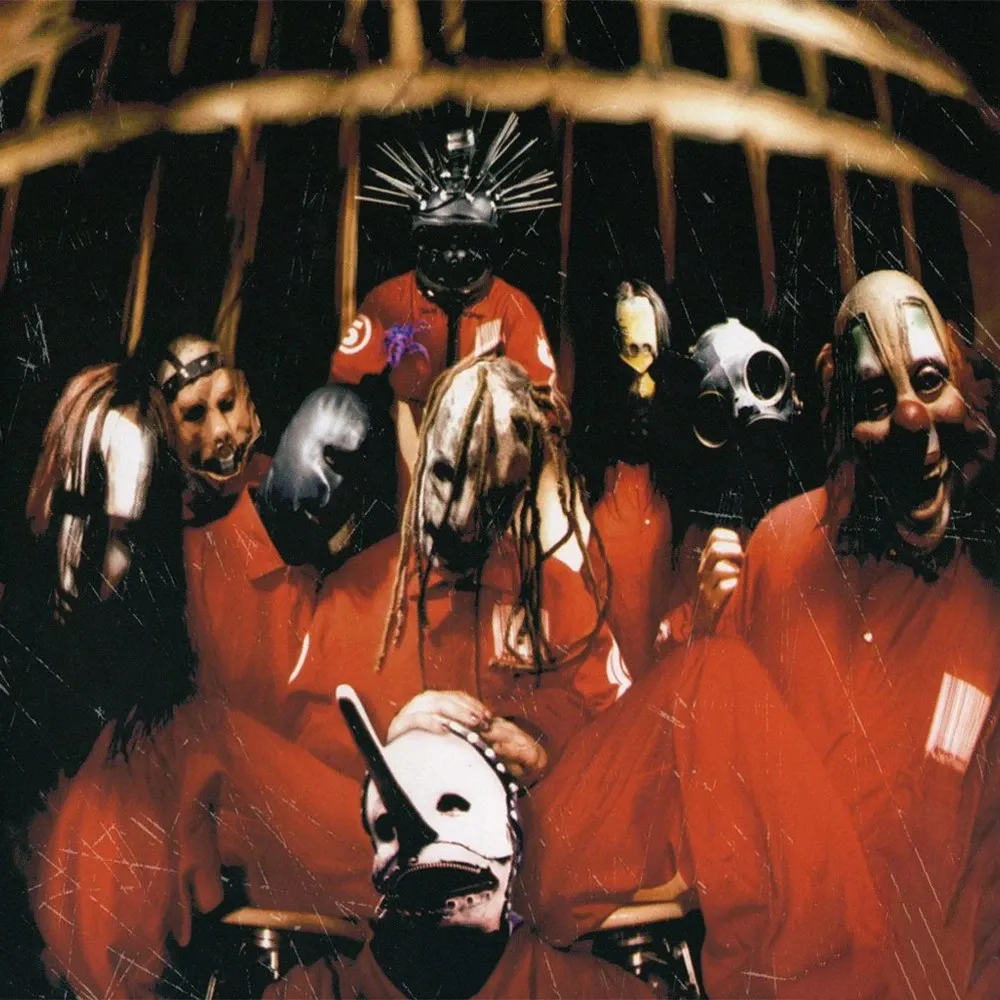
Slipknot is a curious pick for an album that demands the title of “Greatest Ever” because it never insists upon itself. There’s no overriding concept or thematic throughline here; just cylinders pumping forth with the immediacy that powers all of the best nu metal. Guys with no other options seeing their one shot and taking it. Slipknot exists within its own violent vacuum. Zero nostalgia for its moment or respect for the past; just fuck you all, fuck this world, fuck everything that you stand for. As Taylor states on “Surfacing”; “I am the push that makes you move.” Kinetic energy doesn’t have self-awareness. Slipknot need not concern itself with the millions of guitars it sold, the bands it formed, or the wrists that were left un-slashed and the lives saved in its wake. The spark doesn't know it’s going to ignite the fuel that pushes the piston that powers the engine that spins the wheels that make you move. It just explodes.
This was an excerpted and expanded version of my essay on Slipknot's self-titled release originally from our 100 Greatest Nu Metal Albums of All Time list. You can read the full list here.


